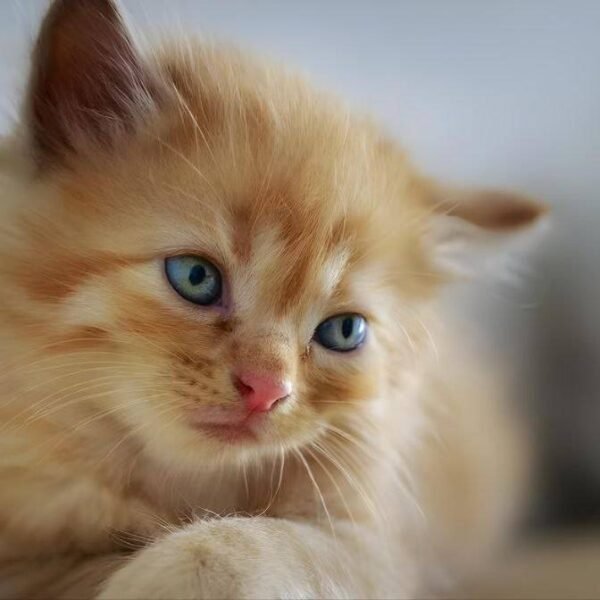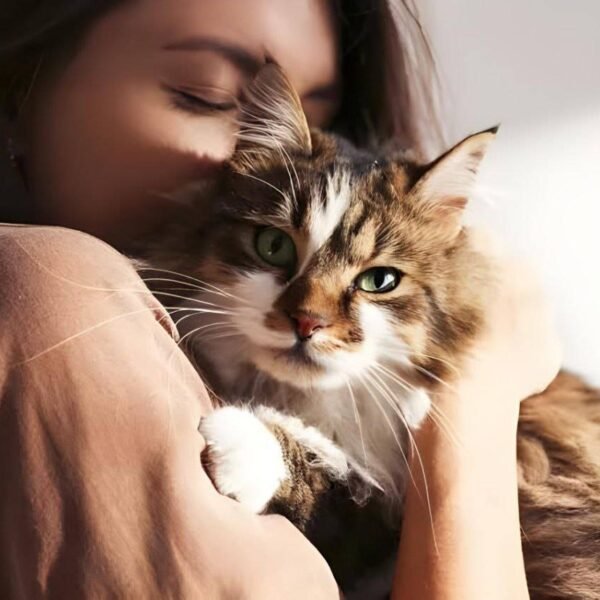
Cat vaccinations
Cats are common pets in many countries around the world. She is loved by many because of her beauty, splendor, and calm nature. In order to maintain the health of cats and reduce the spread of infectious diseases among them, It must be vaccinated regularly.
Cat vaccinations include several types of vaccines that provide protection against various diseases. And help protect the health of cats and reduce the symptoms of infectious diseases that can affect them. Among the common vaccines that cats are vaccinated with, Chlamydia vaccine and the vaccine for respiratory virus, The coronavirus vaccine and the smallpox vaccine.
Cat vaccination is especially necessary for young kittens. Where her immune system is weak and she is more susceptible to various diseases, Therefore, it must be vaccinated regularly so that it can develop a strong immune system that protects it from diseases.
Cats must be vaccinated in pet health care centers. Where appropriate vaccinations are offered according to the age and health status of cats. Cat vaccinations also need to be updated regularly. A schedule for cat vaccinations is determined according to their age and health status.
In addition to regular vaccinations, You should take care of the health of cats in general, provide them with the necessary health care, Including healthy nutrition and providing the necessary hygiene for her place of residence, And provide appropriate health care when needed.
In the end, Cat owners should know the importance of cat vaccinations and be sure to update their vaccinations on a regular basis. So that cats can achieve good health and wellness and protection from various diseases.
Vaccination doses for cats
Vaccinations are one of the essential things to do to keep pets healthy and prevent infectious diseases. Cats also have vaccinations that must be done to maintain their health and protect them from serious diseases. In this article, we will review the doses of basic vaccinations for cats.
1- Chlamydia vaccination: This vaccination is one of the basics for cats. Where this infection is transmitted through the eyes or the respiratory tract and leads to infection of the animal with eye and respiratory tract infections.
2- Chlamydia and syphilis vaccination: This vaccination is essential to protect cats from serious viral diseases such as syphilis and chlamydia.
3- Vaccination for chlamydia, syphilis and cat cold: This vaccination is essential to protect cats from serious viral diseases such as syphilis, chlamydia, and cat cold.
4- Renal virus vaccination: Cats are vaccinated with this vaccine to protect them from infection with the renal virus, which leads to kidney damage and loss of function.
5- Rabies vaccination: This vaccination is essential to protect cats from infection with rabies, which is transmitted through the bites of infected animals.
6- Coccidia vaccination: Cats are vaccinated with this vaccine to protect them from coccidiosis, which causes diarrhea and weight loss.
7- Smallpox virus vaccination: This vaccination is one of the basics necessary to protect cats from infection with the smallpox virus, which causes the appearance of red grains on the animal’s body.
8- Leukemia vaccination: Cats are vaccinated with this vaccine to protect them from leukemia virus infection, which leads to weight loss and a weakened immune system.
9- Hepatitis B Vaccination: This vaccination is one of the basic necessities for cats to protect them from infection with the hepatitis virus, which leads to damage to the liver and loss of its functions.
10- Infective virus vaccination: Cats are vaccinated with this vaccine to protect them from infection with the infectious virus that leads to weight loss and respiratory infection.
In addition to these basic vaccinations, The veterinarian may vaccinate cats with additional vaccinations depending on the condition of the animal and the quality of life it leads, It is advised to do vaccination doses regularly according to the schedule set by the veterinarian to maintain the health of the animal and protect it from infectious diseases.
Table of doses of feedings for cats
Vaccinations are very important in maintaining the health of pets. Especially cats that need a specific schedule to receive the necessary vaccinations. To facilitate this process, A schedule of vaccination doses for cats is used.
The following is a table of the basic doses of vaccinations that must be received by cats:
Chlamydia vaccination: This vaccination is given at the age of the sixth week.
Coccidiosis vaccination: This vaccination is given at the age of eight weeks.
Respiratory virus vaccination: This vaccination is given at the age of ten weeks.
Dogella vaccination: This vaccination is received at the age of the twelfth week.
Chickenpox vaccination: This vaccination is given at the age of the thirteenth week.
Respiratory virus vaccination: This vaccination is received at the age of eighteen weeks.
Decay virus vaccination: This vaccination is received at the age of the twentieth week.
Hepatitis B vaccination: This vaccination is received at the age of the twenty-fourth week.
Cat owners must follow this schedule and receive the necessary doses on time. This is to maintain the health of the pet and avoid infection with various diseases.
You should note that this schedule is a general schedule for cat vaccinations. Veterinarians can adjust it according to the pet’s circumstances and needs.
In addition to basic vaccinations, Cats can receive additional vaccinations such as renal virus vaccination, renal pneumonia vaccination, and inoculation of fungi. Talk to your vet to determine the doses needed for additional vaccinations.
in general, Cat owners should take care of the health of their pets and receive the necessary medical care. This is to keep her safe and happy.
 متجر دكان السعودية | مستلزمات الحيوانات الأليفة
متجر دكان السعودية | مستلزمات الحيوانات الأليفة






